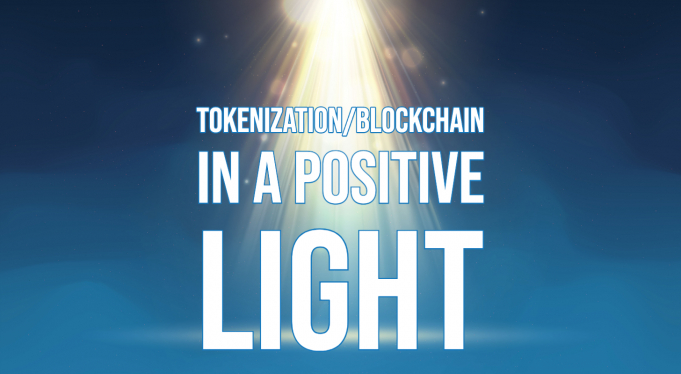Much has been said about the downside volatility of cryptocurrencies, NFTs, digitized tokens, and stablecoins, which are not that stable after all. We could categorize blockchain investors into three types: highly optimistic, retail investors, and highly pessimistic or dismissive. The first and last categories are easy to understand, and identify and are often inelastic in their approaches. Retail investors, on the other hand, are often in it to trade for a short-time period, diversify into the asset class, and may or may not fully understand the mechanics behind the ecosystem or the idealism behind it. Retail investors are psychologically hurt the most when downside volatility or crypto winter hits and are often left questioning their investment to begin with. While it is easy to abandon an asset class with a mention of the dreaded word “bubble” or such drawdowns, we think there is a lot going on behind the curtains worth knowing/mentioning and how the “digital” asset class is slowly penetrating various aspects of our physical world. Digital assets (such as tokens) that are represented on a blockchain can be used for data storage, management, and accessibility. Let’s discuss some uses:
Shopping
While still in the early phases, shopping using digital tokens (such as NFTs) and cryptocurrencies is gaining a small footing around the world. Shopping globally without the worries of foreign exchange and charges associated is slowly, but surely, becoming a normal thing for certain groups of people. Various retailers and commerce-enabling platforms are enabling and supporting such transactions. Such transactions recorded on blockchains, help retailers or service providers map out their client base and analyze data in a more accessible way. Think of it this way, we have Canadian Tire money, Starbucks gift cards, Tims rewards, and store credits which are not inter-operational, meaning we cannot go to a Walmart and use Canadian Tire money, digital tokens allow for that inter-operational use, mobility of purchasing power, and overall, less pre-payment or retail reward clutter. This is still in the early stages, and with a vast number of tokens in the market, there is a varying degree of value placed on some tokens versus others for unlocking rewards or uses.
Marketing
Custom ads reaching custom target audiences would be a lot easier, convenient, and feedback-driven with the use of tokens. In this era of subscriptions, customers demand ongoing benefits and/or value add which can be often expensive, time-consuming, and difficult to manage for smaller players. A real-life example could be if, hypothetically, a small subscription-based company (could be a blog, website, podcast, or social media) wants to offer its subscribers one-month free access to another company/service as part of an affiliated marketing campaign, using blockchain, the data is easily retrievable, and digitally malleable to reach the desired target audience. A consolidated token-based subscription could not only reduce digital log-in clutter but streamline subscriptions and services in a manageable way for subscribers and offerors alike.
Transparent data storage
Blockchain is a distributed network architecture, versus servers that are centralized, offering a more stable, sustainable, and transparent way of public record keeping. This can allow for a two-way transparent relationship between public and government agencies. Government agencies using blockchain as a form of data storage can automatically restrict and allow access between government agencies and support organizations and the public can see what data government keeps records of and uses. Encryption is not 100 percent safe on a blockchain (with some likelihood of hacking), but the risk is significantly lower than server-based data storage. Data storage can also be used for physical real estate assets and can untangle property purchase or sale transactions, minimizing administrative delays and making transparent lien information between parties and/or the government.
Supply chain
The current supply chain ecosystem is a maze full of tips, tricks, shortcuts, calculations, inefficiencies, and supplier matching. The repercussions of any mishap in the system are huge leading to empty shelves, inflation, and global shortage. Consider how much easier supply chain management would be if data on blockchain allows a company to place an order to a supplier by providing a list of suppliers of that product/service, know the dimensional prices and timeline, and be able to present to buyers all within a certain framework. Right now, it involves travelling to potential suppliers, discussing product/service, finalizing on some details, then working with shipping companies, understand shipping box/pricing, and work in tangles. The former sounds much simpler and can streamline operations globally not just for big players but also for smaller competing companies.
Online gaming
Gaming apps and platforms already use their own kind of tokens and coins to unlock further challenges and/or bonuses and entice players. This growing 18 billion dollar (US)[i] industry has already begun seeing some revolutionary changes as blockchain improves gaming efficiencies such as reward and play-to-earn and makes tournaments more transparent. Blockchain has improved player engagement monetization along the chain benefiting almost all ecosystem enablers such as graphics designers, game developer,s and audio creators.
Blockchain has the ability to change and improve many industries, but the change and adoption must and have been slow and steady. Tokens (written on blockchains or physical) have a “collectibles” like personality, wherein, in absence of anyone else placing value on it, it is not valuable. While this might be inappeasable to hear, we must understand that tokenization is not a new concept, it has always existed and is just seeing a digitalization. Your collective watch, vintage car, art, and precious stone are only worth (in the market) what a buyer would pay. Expanding on some of its functionality can only improve versatility and utility.
Companies we think have or will move towards this theme:
- Shopify: Enabling merchants to utilize tokens as a method of payment; depending on what merchants want to accept/what benefits they want to offer. This can also be used in supply chain management, reducing human interaction/error, and standardizing many aspects of the supply chain including shipping, orders, and payments,
- Amazon: Similar to Shopify but with a wider cast, Amazon can standardize some types of tokens to be used on its platform. With a cloud business segment as well, Amazon has a lot to gain by either creating its own token (which we hear, it already is) and allowing other tokens to be included in the ecosystem,
- Facebook: With the metaverse as a long-term vision, there is going to be a higher degree of the use of digital tokens, varying from gaming, marketplace, virtual reality purchases (such as online gifts), data storage (given the rage about personal data collection), and/or unlocking services. Digital advertising can improve quality and feedback,
- Maersk: As a logistics company active in ocean and inland freight transportation, Maersk can benefit from blockchain data transparency improving efficiencies and visibility of cargo,
- General Motors or Ford: Improve operational cycle including supplier payments and visibility of parts, can improve traceability with regards to parts, recalls, insurance and safety standards,
- Intuitive Surgical: Data integration and analysis across business segments, components, and machines, improving accountability when it comes to faulty or defective pieces and counterfeit components
These are a few varied examples of where and how blockchain is being or can be used. This does not negate investor sentiment about the asset class, nor does it seek to counter any recommendation for or against blockchain-focused operations or companies, it merely offers a different light on how blockchain is not just an “in the air” type of idea but is one that is likely to have a long-lasting impact on how we live, operate and trade, even if it still might take some time to gain acceptance in different niches.







Comments
Login to post a comment.